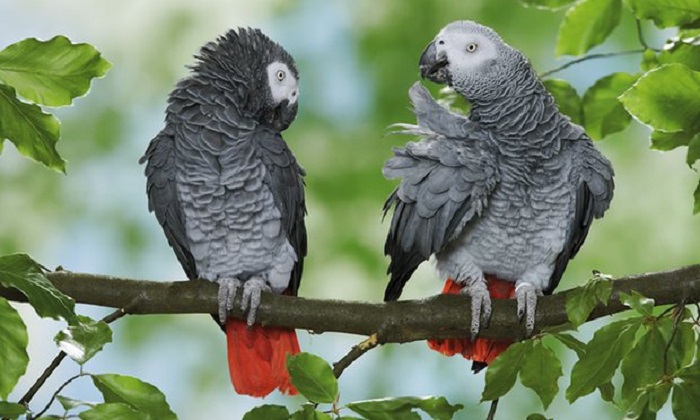African grey parrot has global summit to thank for protected status

“If this bird could talk, the African grey parrot would say thank you,” said Susan Lieberman, of the Wildlife Conservation Society. “Now, with the protection, the voice of the African grey parrot will not be silenced across the great forests of Africa.”
Between 2 and 3 million of the parrots have been taken from the wild in the past 40 years and populations of the species have plummeted across its range in west, central and eastern Africa.
The 182 nations gathered in Johannesburg for the Convention on International Trade in Endangered Species (Cites) tackled the crisis on Thursday, but only after an acrimonious debate and a rare secret vote. The result went 95 to 35 in favour of awarding the African grey the highest level of protection, which bans all international trade. Captive-bred birds can still be traded but only if facilities register with Cites.
The Democratic Republic of the Congo, home to the largest African grey parrot population, argued strenuously against the new ban, saying it was based on a “doubtful hypothesis yet to be proved”. But the proposal, put forward by Gabon and six other African nations plus the EU and US, was passed, with the Ivory Coast delegate saying: “Birds know no borders, so we have to work together.”
Colman O’Criodain, of WWF, said: “A total ban on international commercial trade in wild African grey parrots is a huge step forward and will help to protect this extraordinary species from the rampant trapping and trading that has contributed to population collapses and local extinctions across Africa in recent decades.
“Fraud and corruption have enabled traffickers to vastly exceed current quotas and continue to harvest unsustainable numbers of African grey parrots from Congo’s forests to feed the illegal trade. Banning the trade will make it easier for law enforcement agencies to crack down on the poachers and smugglers and give the remaining wild populations some much-needed breathing space.”
The African grey parrot is a popular pet not only for its ability to chat, but also for its longevity: it can live up to 50 years. One famous African grey, called Alex, lived to 30 and was able to communicate using 100 words.
The African grey is a gregarious bird, making it easy for trappers to cast nets over flocks of dozens at a time. But about 50% of the birds die before reaching their destination.
Feathers flew among the Cites nations over a proposal to downgrade the protection for the world’s fastest creature, the peregrine falcon. It currently has the highest level of protection, following a plunge in its population from the 1950s to the 1970s as pesticides, including DDT, wrought havoc. Persecution by farmers and egg collecting also hit the falcons’ numbers.
However, the population has rebounded and there are now about 300,000 spread all over the globe. The raptor has adapted to the spread of towns and cities by learning to catch feral pigeons. Furthermore, only 500 or so falcons are officially traded every year, almost all of which are bred in captivity, according to Canada, which led the proposal.
The downgrade was supported by Arab states, where falconry is popular. “It is part of our history and heritage,” said the delegate from the UAE, who said falcon “passports” ensured only captive-bred falcons were used. Some conservation groups also backed the downgrade. “The recovery of this species from catastrophic decline is one of the great conservation success stories,” said O’Criodain. “It is time this is recognised.”
However, the Pro-Wildlife conservation group said several local populations were still vulnerable, especially those with unusual colour variations, which can fetch $50,000 on the black market.
The EU opposed the downgrade, arguing it would increase the demand for wild-caught falcons. Iran’s delegate also opposed it, claiming that 300 illegally caught peregrines had been seized in one operation in 2014. “We have a very big problem with poachers all around the country, and even the injuring or killing of wildlife rangers,” he said.
The proposal was forced to a vote and was defeated 57-52.















































